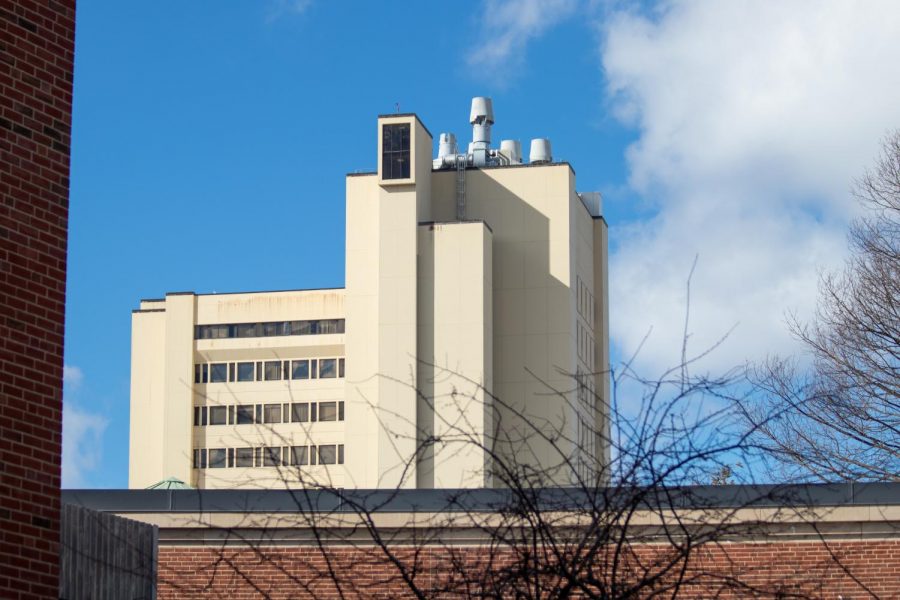
There’s a housing crunch at the University of Massachusetts. The dip in the economy combined with the growing prestige of the University has made UMass an increasingly attractive option for those seeking higher education. In fact, applications to the University have nearly doubled over the last ten years, from around 16,500 for the fall of 2003 to around 32,000 the past few years. As a result, the University has made a habit out of welcoming a record number of freshmen into its ranks every year.
However, this has not come with an increase in space to house these students. The new Commonwealth Honors College dormitories will not be open until at least the fall semester of 2013; in the meantime, the University has had to get creative with regards to housing its students. Lounges have become quads, z-rooms have become triples, and the University has renovated buildings in order to allow students to move into basement rooms.
Another notable change has been the decision to guarantee housing only to freshmen at the University. It wasn’t long ago that sophomores were also guaranteed a room on campus, but the increasing demand for housing has made this promise simply impossible to make.
The plight of incoming transfer students has been lost in the housing crunch. The majority of transfers are students who are coming to the University after a year or two at another traditional four-year college or a community college, and as such are sophomores and juniors. The University’s guarantee of freshmen housing extends to freshmen transfers, of which there are few.
The University prioritizes housing selection based on the number of semesters spent living on campus; a senior who has lived on campus his entire academic career gets priority in selecting housing over a sophomore with two semesters under their belt. This system puts transfer students, who of course have spent no time living on campus at UMass, at the end of the line for picking housing. Combine this with a lack of a guarantee for housing, and the University is effectively denying housing for a great number of transfer students.
This represents an enormous obstacle for many who wish to attend the University. The transition to life at UMass Amherst is made exponentially greater for those who are unable to live in the campus community. It is more difficult for them to settle in, make friends, and get acclimated to life at UMass. This is why the University guarantees housing to freshmen in the first place.
The expectation is that transfer students turn to off-campus housing, of course. But this ignores the realities of getting off-campus housing and the needs of many incoming transfers. Many incoming transfer students will be unfamiliar with the Amherst area; to them, phrases like Puffton and the Boulders are alien. Getting a house will also prove extremely difficult. There is a good chance the incoming transfer does not know anyone at the University they can share a house with. Renting a house for a year can require as many as 4-5 roommates; how likely is it for an out-of-state transfer student to know that many people they’d be comfortable living with for an entire year?
Then there is the schedule for getting off-campus housing itself. I intend to live off-campus next year. My future roommates and I began apartment hunting in November, put in a deposit in December, and signed all the paperwork last week. The increase in students in the area has also created a housing crunch for off-campus housing, and getting an ideal place to live has become an increasingly competitive game for UMass students.
It’s too much to expect a transfer student to be thinking that far ahead about their off-campus housing. While my roommates and I are finalizing where we’ll live, future transfer students are still submitting their applications to get transferred in the first place.
It’s important to remember as well that many of these incoming transfers are only a year older than their freshmen counterparts who are guaranteed housing. Though they have a year of college under their belts, it is not necessarily enough to prepare them for a last-minute housing hunt right before they start school. I worked as a New Student Orientation counselor last summer, and I was dismayed to see that though many incoming transfers were vaguely aware that they would not be guaranteed housing, they were counting on getting a spot anyway, and were downright afraid of the thought of missing out on a spot.
I have attended sessions held by Residential Life where they have acknowledged a disparity between the freshmen experience and that of the sophomore and junior. ResLife is aware that much emphasis is put on freshmen while upperclassmen are given far less attention, and they are seeking to remedy this.
As the housing crunch is relieved with the construction of the Honors College dorms, I call on the University to guarantee housing to all first-year UMass students, instead of just freshmen UMass students. This slight change in language guarantees housing to transfer students and greatly improves the experiences of these sophomores and juniors. The net result is a more positive experience for the student which gets them on track for a successful academic career.
Billy Rainsford is a Collegian columnist. He can be reached at [email protected].


















john • Jan 26, 2012 at 5:40 pm
The school in my opinion is incompetently ran; just recently we became aware of a 69 million dollar expenditure on updating the dinning commons. 69 million dollars could have easily been spent to build additional dormitories on campus and land access is not a problem either, as the school has hundreds of acres of unused land on the outskirts of campus.
This is in addition to the fact that as a flagshap state university; umass has among the lowest number of faculty in the country!! Again a portion of that 69 million could have spent to hire additional teachers to improve the quality of education, reduce staff size and increase the availability of courses.